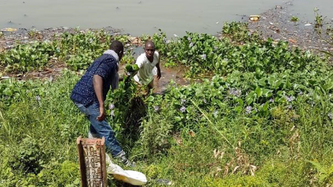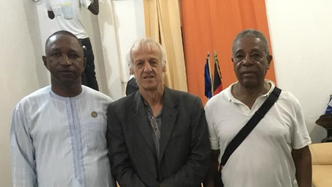

Swiss Partners
Planair SA, La Sagne,
www.planair.ch,
Pierre Renaud, Martine Felber
ERA International, Geneva,
www.era-international.net,
Roger Michel
Project Type:
Technology:
Country:
Project Status:
Project Start:
End of Project:
Contract:
Documentation
Swiss Contribution
The Planair SA engineering firm, an expert in energy issues, has been the project’s manager and coordinator. ERA International, the Swiss NGO, has been present in Mali for over 10 years and has been supporting the project with its extensive local knowledge, contacts and intermediaries.
Description
The project’s plan has been to prepare for the use of water hyacinths as the main substrate for a fermentation (methanisation) plant, thus assisting in cleaning up watercourses, improving navigation, fishing conditions and hydroelectric power stations’ operations. The produced biogas should eventually feed into a cogeneration plant; producing electricity and heat for the capital’s craftsmen, small industries and inhabitants. The fermentation residue (digestates) must be reused as natural fertilizer.
REPIC has previously supported the feasibility study (Project No. 2009.05). The current detailed design phase should lead to the investment decision. It aims, among other goals, to set up a legal and administrative structure for the construction and operation of the plant, to organize the training of the local workforce, to validate the financing plan and to conduct a substrate study which should confirm the specific water hyacinth fermentation process.
Results
A site for the fermentation plant was defined in Koulikoro. At the same time, the topics to be addressed in the required Environmental and Social Impact Assessment were identified. The methanogenic potential has been determined and the orders of magnitude allowing the substrates’ supply are known (techniques and related costs). Discussions are in progress to obtain a “turnkey” offer for the plant’s construction. Also, the profiles of several people capable of managing the work on site have been evaluated.
Impacts
The results demonstrated by the economic analysis, as well as the uncertainties in the biogas production, led to proposing a smaller sized pilot plant (75 kW) before beginning work on a larger sized plant (500 kW).